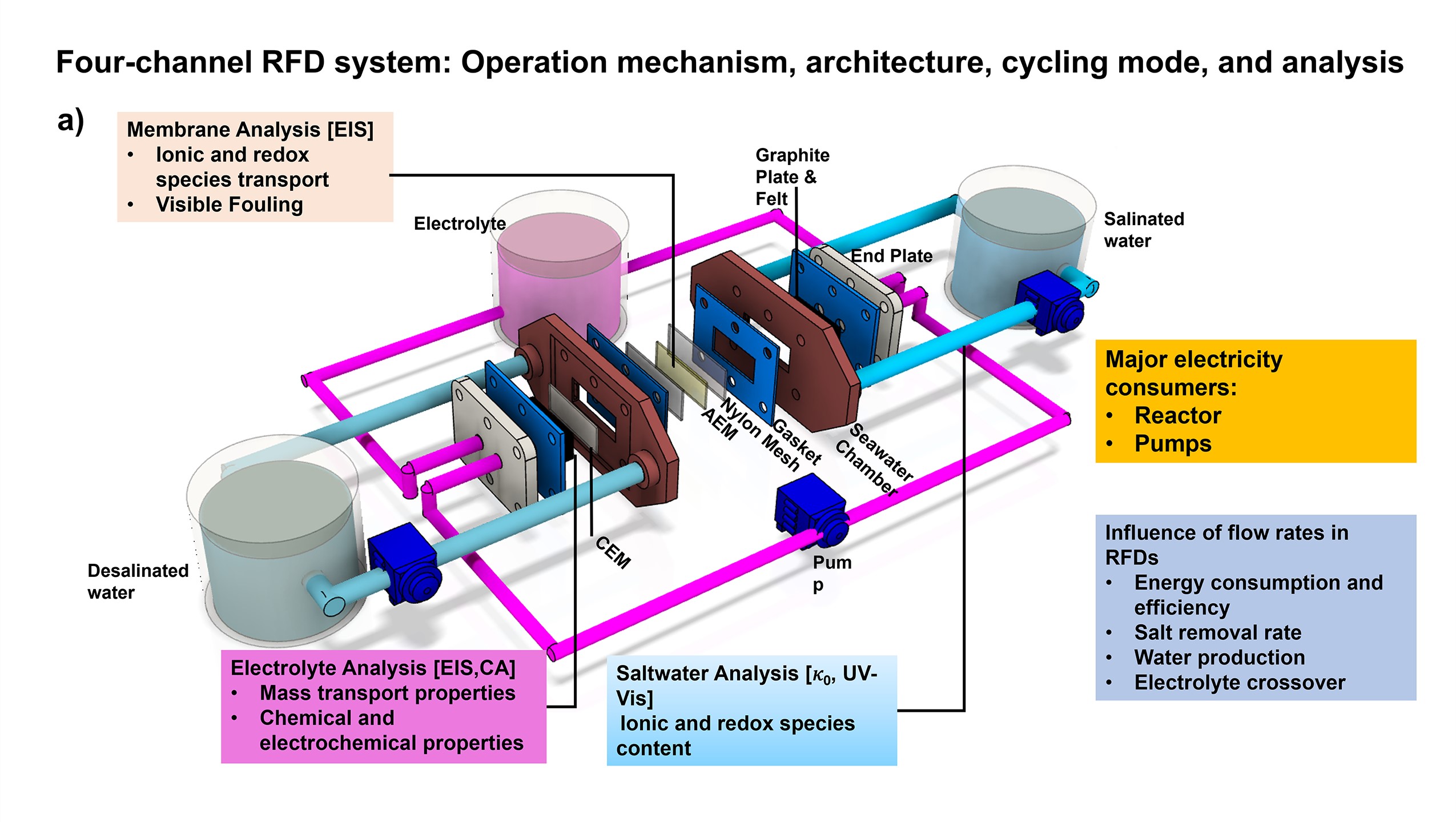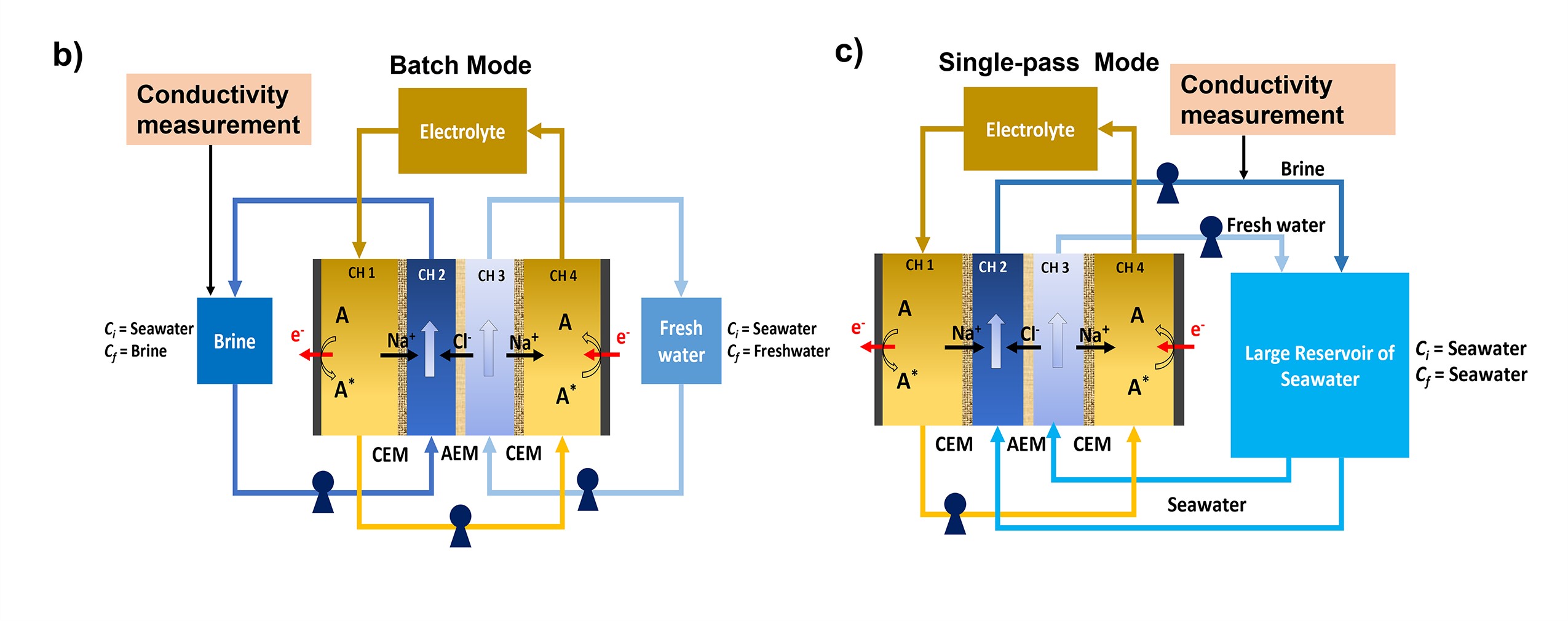
Investigation of flow rate in symmetric four-channel redox flow desalination system introduces an innovative approach to turning seawater into drinkable water while also storing renewable energy. This new method, called Redox Flow Desalination (RFD), shows promising results for addressing water scarcity and energy storage challenges.
The RFD system uses a clever design with four channels to process seawater. Two of these channels handle the seawater, while the other two contain special chemicals that help remove salt from the water. The researchers used advanced 3D printing to create this system, which allowed them to fine-tune its design for better performance.
When seawater enters the system, it's split into two streams. One stream becomes saltier, while the other becomes fresher. The system uses a combination of membranes and chemical reactions to move salt ions from one stream to the other. This process not only removes salt from the water but also stores energy, similar to how a battery works.
One of the key achievements of this study was improving the efficiency of the RFD system. By carefully adjusting how quickly the water and chemicals flow through the channels, the researchers were able to remove about 20% more salt from the water. At the same time, they managed to reduce the amount of energy the system needs to operate.
The RFD system is flexible in how it can be used. It can process water in a single pass or in batches, allowing operators to control how long the seawater stays in the system. This flexibility means the system can be adjusted to produce water of different qualities, from slightly salty to completely fresh drinking water.
This research is particularly important as the world faces increasing water shortages due to climate change and population growth. The RFD system offers a way to produce more drinking water while also helping to store renewable energy from sources like solar and wind power. This dual functionality makes it a promising solution for two of the biggest challenges facing our planet today.

